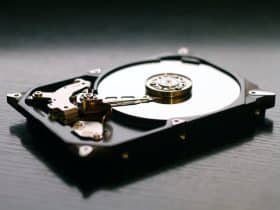Many businesses are turning to BYOD (Bring Your Own Device) policies in the workplace. A BYOD policy allows your employees to use their own electronic devices – including laptops, tablets, and smartphones – for work.
A BYOD policy can save your company money since you won’t have to purchase official electronics for each employee. However, there are also some concerns with the use of personal mobile devices in businesses, especially with the way your employees use their devices when not at work.
Let’s go over some tips for managing employees’ after-hours use of mobile devices, so you can feel more comfortable implementing a BYOD policy for your business.
Set Up an Official BYOD Policy
You can’t manage your employees’ usage of their mobile devices at all without a clear, official policy. Setting up a policy should involve detailing:
· When Employees Can Use Their Personal Devices
· How Much Access You Will Have to Employees’ Personal Devices
· Any Reimbursement Offered for the Cost of Personal Devices
Some employers limit the usage of personal devices even when employees are at work. For example, employees may be forbidden from using personal devices during meetings.
Put Clear Limits on After-Hours Usage of Personal Electronic Devices
Personal electronic devices can allow employees to work at any time of day. This productivity can be very useful, especially if your employees work from a remote location. However, you may run into issues if employees are working off the clock. After all, in many cases employees must be compensated if they are performing any work task, including:
· Writing or Reading Emails
· Answering Phone Calls
· Going Over Online Documents
You can set up rules that allow employees to access only work applications during certain times. Make sure that there are consequences in writing for the employees who engage in off-the-clock work.
Consider Mobile Time-Keeping Apps
Sometimes, after-hours work on personal mobile devices is unavoidable. Employees may feel that they need to complete a task, especially if they feel pressured by supervisors to plug back into your business. You should remind supervisors that employees should not be contacted when they are not at work, if at all possible.
However, if your business can’t avoid frequent after-hours use of personal electronic devices, you have some options to track time worked. There are a number of apps that can monitor mobile work, like Timesheet Mobile. These apps record the amount of time your employees put in on their mobile devices.
This can help you avoid off-the-clock work violations associated with personal electronic devices.
Focus on Privacy and Security with Personal Electronic Devices
Employees may work off the clock with personal electronic devices. They may also access proprietary information about your business through their devices, as a necessary part of their workload. You should set up an in-depth security policy for mobile devices to protect your business and your employees.
You should consider:
· Company Supported Anti-Virus Programs
· Purchasing Cyber Liability Insurance
· Using a Virtual Desktop Infrastructure (VDI)
· Focusing on Protected Cloud Storage
· Keeping Security Features Updated
Protecting your company when employees who their personal electronic devices requires a focus on mold security. Following these tips can ensure that your employees use their devices appropriately and safely after business hours.














Leave a Reply